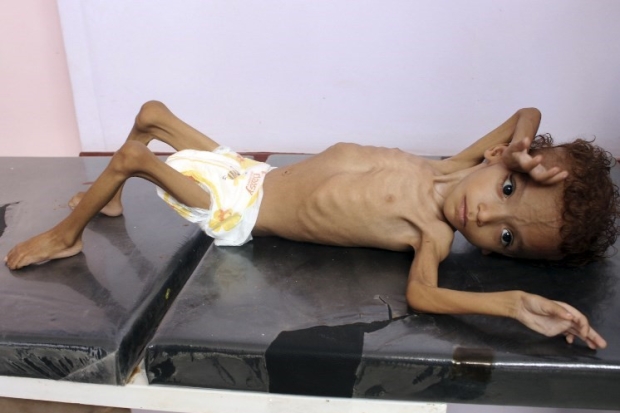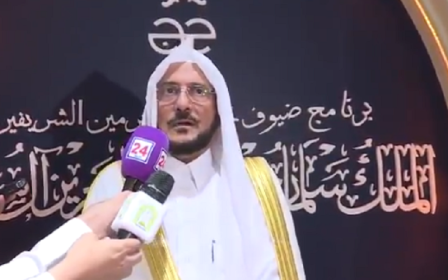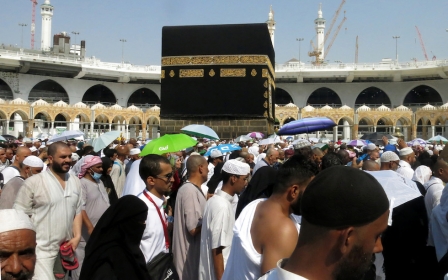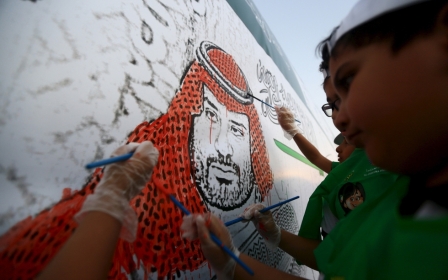Unrepented sins: How the message of the Hajj is lost on Saudi Arabia
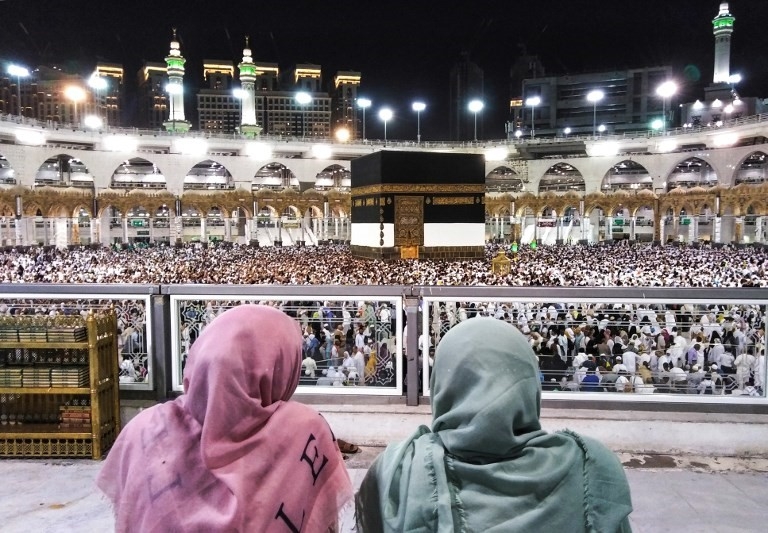
As the week of the Hajj, Islam’s annual pilgrimage to Mecca, draws to a close, the UN has announced the imminent outbreak of a third wave of cholera in Yemen. According to UN estimates, this disease has already killed 2,300 people and infected 1.1 million, a medical catastrophe by any standards.
One can’t help wondering if the Saudi authorities, now calculating their gains and losses from yet another profitable week of foreign pilgrimage, bothered to pause in their counting to spare a thought for this tragedy caused entirely by their country’s unjust war on Yemen.
Prestige and legitimacy
The Hajj, obligatory on the world’s 1.5 billion Muslims at least once in a lifetime, confers many advantages on its administrators. Through it the rulers of Saudi Arabia acquire prestige and legitimacy in the Islamic world and from their status as custodians of the holy places. In addition, the Hajj is a considerable source of revenue for Saudi Arabia, second only to the oil industry.
No one is certain of the exact amount the Hajj nets in, but an estimate from 2014 puts this revenue at $8.5bn for that year; others cite an average annual figure of between $12 and $20bn, taking into account the "Umrah", or lesser pilgrimage, that can take place at any time during the year.
Though the Hajj involves a number of rituals, in its essence, it is a profoundly spiritual event
In 2017 Arab News, quoting several economic experts, predicted total pilgrimage revenue for Saudi Arabia of $150bn by 2022. The large numbers of pilgrims has necessitated the construction of hotels, shopping malls, roads and other infrastructure, creating thousands of jobs.
Given these economic attractions, Saudi Arabia is unlikely to relinquish its ownership of the Hajj administration, even though it has no more right to it than any other Islamic state.
Proposals that Saudi Arabia's administration of the Hajj should be replaced by an international body of Islamic states’ representatives under the auspices of the Organisation of Islamic Cooperation were put forward decades ago, but have never been acted on.
Whatever the case, Saudi Arabia remains in charge of the Hajj for the foreseeable future, if for no other reason than its ownership of the land where the two holy cities stand.
A spiritual event
Has this fortunate accident of history conferred a sense of spiritual enrichment on the Saudi rulers? Have they understood the true message of the Hajj that they administer? Though the Hajj involves a number of rituals, in its essence, it is a profoundly spiritual event.
This spirituality find its zenith in the rituals of the second day of the Hajj when pilgrims make the journey to Mount Arafat, a hill 20km from Mecca where the Prophet Muhammad is said to have delivered his last sermon shortly before his death. Here they spend the day in quiet contemplation and worship, ponder their past sins, and repent.
It is then, on the second day of the Hajj, that the rulers of Saudi Arabia would do well to reflect on their country’s past and present sins. As custodians of Mecca and Medina, the Saudi kings have betrayed the unique history and culture of the holy cities entrusted to their care.
Saudi Arabia has been lining itself up ever more closely with Israel, the arch warmonger of the region and real enemy of the Arabs
In obedience to their joyless Wahhabi version of Islam, a version they have propagated to the detriment of every Islamic society it has reached, the Saudis have already demolished 90 percent of Mecca and Medina’s old quarters, mosques, tombs, shrines and historic houses.
All the homes and tombs of the Prophet’s family and the rightly guided caliphs have gone; the house of his first wife, Khadija, is now a public toilet, and that of his uncle, Hamza, demolished, though it had stood for nearly 1,400 years. The Prophet’s tomb was next on the list for destruction, but they were stopped after an international outcry.
Saudi sins
Mecca today is a soulless city of flashy skyscrapers, shopping malls, luxury hotels, built so high they dwarf the Kaaba, and a network of new roads. Neither city is protected by Unesco, and is at the mercy of the Saudi ruling family.
Far from the unity and harmony enjoined by the spirit of the Hajj, Saudi Arabia is deeply involved in war and conflict. Since 2015 it has been the spearhead of a devastating war on Yemen, wreaking havoc on the civilian population that led, in 2017, to a UNICEF-estimated 50,000 child deaths, and the destruction of large parts of the country’s infrastructure.
Yemen’s ports are blockaded, with resulting famine and disease. And yet, Saudi Arabia and its allies continue the war, reducing what was already a poor country to utter destitution, and for no apparent benefit.
Meanwhile, the Saudis have needlessly prolonged the deadly conflict in Syria through indiscriminate funding of vicious jihadist groups who could only wreak havoc amongst the people of Syria. At the same time the Saudis maintain a pointlessly belligerent stand towards Iran that cannot defeat it but only destabilises the region.
And they have placed their near neighbour, Qatar, under a year-long blockade, thus depriving themselves of the Gulf unity needed against the Iran they claim to fear.
Most seriously, Saudi Arabia has been lining itself up ever more closely with Israel, the arch warmonger of the region and real enemy of the Arabs. The Saudi crown prince, Muhammad bin Salman, who seems not to understand the Palestinian-Israeli conflict, has allied himself with Jared Kushner and Jason Greenblatt, ruthless US Zionists who want to extinguish the Palestine cause for good.
Withdrawing support for the Palestinians in favour of their usurper and oppressor is not only an act of folly and injustice, but a recipe for endless conflict and instability in the Middle East.
Each one of these is a sin that Saudi Arabia’s rulers should have pondered and repented on Mount Arafat this week.
- Ghada Karmi is a Palestinian doctor, academic and author.
The views expressed in this article belong to the author and do not necessarily reflect the editorial policy of Middle East Eye.
Photo: Muslim worshippers watch as others circumambulate around the Kaaba, Islam's holiest shrine, at the Grand Mosque in Saudi Arabia's holy city of Mecca on 17 August, 2018 prior to the start of the annual Hajj pilgrimage in the holy city (AFP).
This article is available in French on Middle East Eye French edition.
Middle East Eye propose une couverture et une analyse indépendantes et incomparables du Moyen-Orient, de l’Afrique du Nord et d’autres régions du monde. Pour en savoir plus sur la reprise de ce contenu et les frais qui s’appliquent, veuillez remplir ce formulaire [en anglais]. Pour en savoir plus sur MEE, cliquez ici [en anglais].



